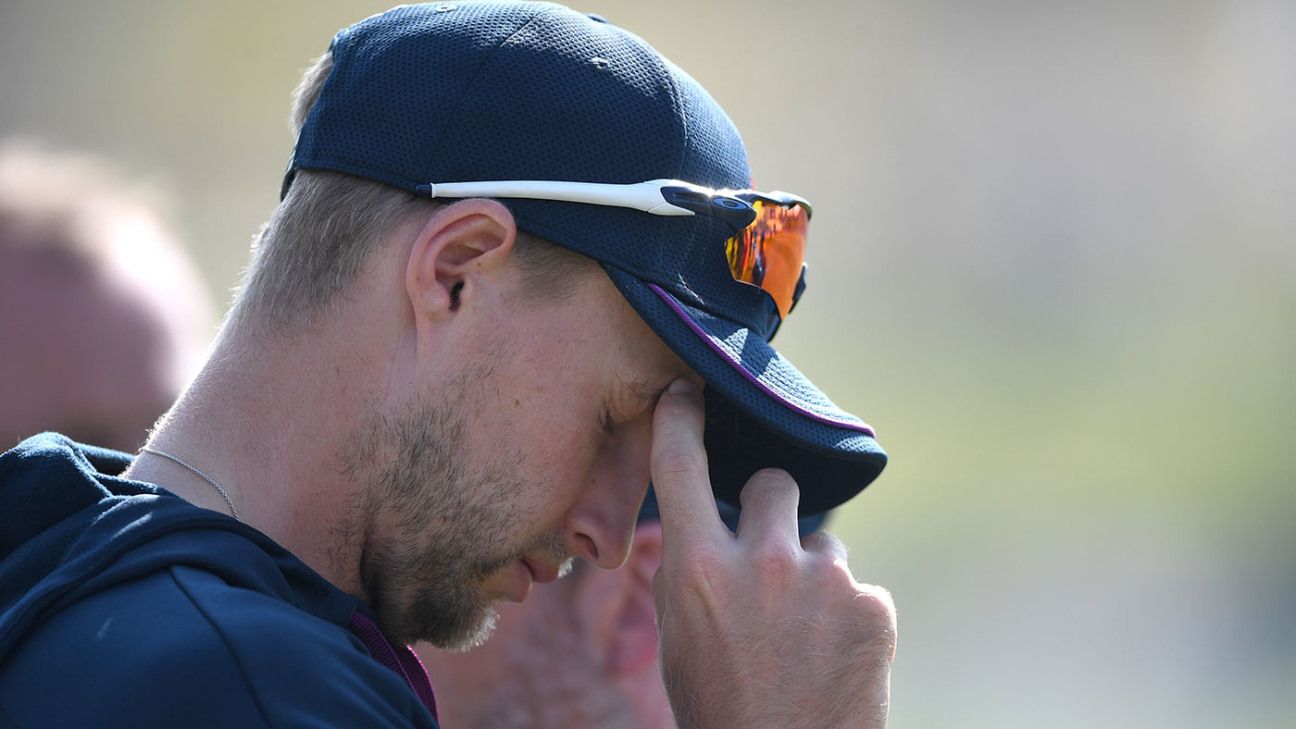
A failure to capitalise on a solid foundation in the first innings cost England dearly in their defeat in the first Test against New Zealand, Joe Root has admitted.
England were well-placed at 277 for 4 on the game's second morning, before Ben Stokes' dismissal set in motion a collapse of four wickets for 18 runs, and an eventual score of 353 all out. Root told Sky Sports afterwards that "getting into the position we did and not kicking on is probably what cost us the game", but defended his side's performance, insisting that there was "no need to panic" despite another crushing defeat away from home.
"We missed an opportunity, if we're being brutally honest," he said. "You look at the two [first] innings in comparison: two of their guys went on and made really big contributions. We had a couple of guys play really well, but could have done with making those big scores - making a score over 450, really.
"That was a big opportunity for us that we missed. There were probably a lot of similarities where we had them four or five down for the score where we finished on day one… the difference being they had a guy with a double-hundred and someone support him with a hundred.
"We had three guys [Stokes, Joe Denly and Rory Burns] play very well. [I'm] not trying to take anything away from our boys - we played extremely well, we just have to do it for longer, do more of it, and make those nineties, seventies and fifties into two hundreds and hundreds."
ALSO READ: Watling innings reignites questions about England's game
The build-up to this series was dominated by Root's declarations that England would revert to an old-fashioned method in Test cricket, with a batting blueprint that involved occupying the crease for long periods after a couple of years playing "in fast forward". And England's captain insisted that there was no need to panic ahead of the second Test at Hamilton, saying that defeat should not be considered "the end of the world".
"It's not going to happen overnight," Root admitted. "It's quite different to the style of cricket we've had to play in our own conditions of late, so it is going to take a little bit of time. There are areas that we can address, and get better at, and we'll have to look at very quickly.
"We have to be honest with ourselves, not panic, not think that it's the end of the world, and make sure that we continue to work really hard. It's a mentality thing more than a technical thing - it's a mindset thing. So trying to harness that early and trying to learn from mistakes like this game and move on very quickly from it… if we can do that, then we'll see rapid improvement.
"I can't fault the effort from the guys. I think we tried extremely hard. It's very easy to look too in-depth at the things we could have done better and not give credit to the opposition, who played very well."
Root admitted that several dismissals in the second innings had been "soft" - including his own, as he tamely steered a Colin de Grandhomme bouncer to gully - but said that it was important to give credit to New Zealand's "very disciplined bowling attack".
He also echoed Jos Buttler in defending Jofra Archer's underwhelming performance in his first overseas Test. Archer finished with figures of 1 for 107 in 42 grueling overs, and was repeatedly used as an enforcer.
"He's obviously an extremely exciting talent, and [has] got a huge amount of skill," Root said. "[But] he's a young guy at the start of his career. He's come onto the international scene and taken it by storm, but this is a new ball [the red Kookaburra] that he's never bowled with before, completely foreign conditions for him, and it might take a little bit of time to adjust to that and get used to that.
"Having too much an expectation for him so early in his career is a very dangerous thing for us as a team, and us as guys around him that know what he's capable of. I think we've got to be quite patient and understanding that he's not going to get it straight away."















 Phone: (800) 737. 6040
Phone: (800) 737. 6040 Fax: (800) 825 5558
Fax: (800) 825 5558 Website:
Website:  Email:
Email: 






